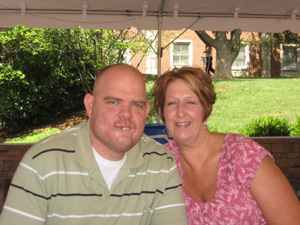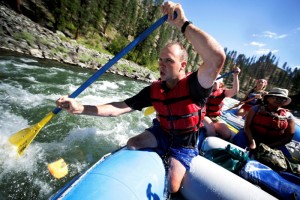By Judy Troccano, Guest Blogger
Editor’s Note: CaringBridge is a participant in the AW2 Community Support Network.
CaringBridge provides free, personalized websites to help wounded warriors and their Families stay connected to their strongest support groups–their extended Family members. These websites are designed specifically to help Families communicate critical information and stay in touch in a healthcare crisis. After a combat injury, setting up a CaringBridge website is the fastest, easiest way to keep in touch with Family, friends and those still deployed in the field.
The free, nonprofit web service simplifies communication by providing one central place to update everyone. A CaringBridge website includes a journal to post health updates, a photo album, and a guestbook for loved ones to leave messages of support and encouragement. It connects a Soldier’s entire community, creating a network of support for everyone involved.
Families going through a serious health event can be overwhelmed by medical terminology, treatment decisions and hospital visits. In times like these, support from extended Family and friends can be essential.
The website can be an important tool to help wounded warriors reduce isolation and stress in a difficult time, giving them a much-needed outlet for sharing their experience and receiving support.
CaringBridge has grown to host more than 170,000 personal sites that connect over half-a-million people daily. The free websites are not just for war-related injuries–they are also used for Families facing cancer, a serious car accident, premature birth and much more. Learn more or create a site today at www.CaringBridge.org.
The appearance of external hyperlinks does not constitute endorsement by the United States Department of Defense of the linked web sites, or the information, products or services contained therein. For other than authorized activities such as military exchanges and Morale, Welfare and Recreation (MWR) sites, the United States Department of Defense does not exercise any editorial control over the information you may find at these locations.




